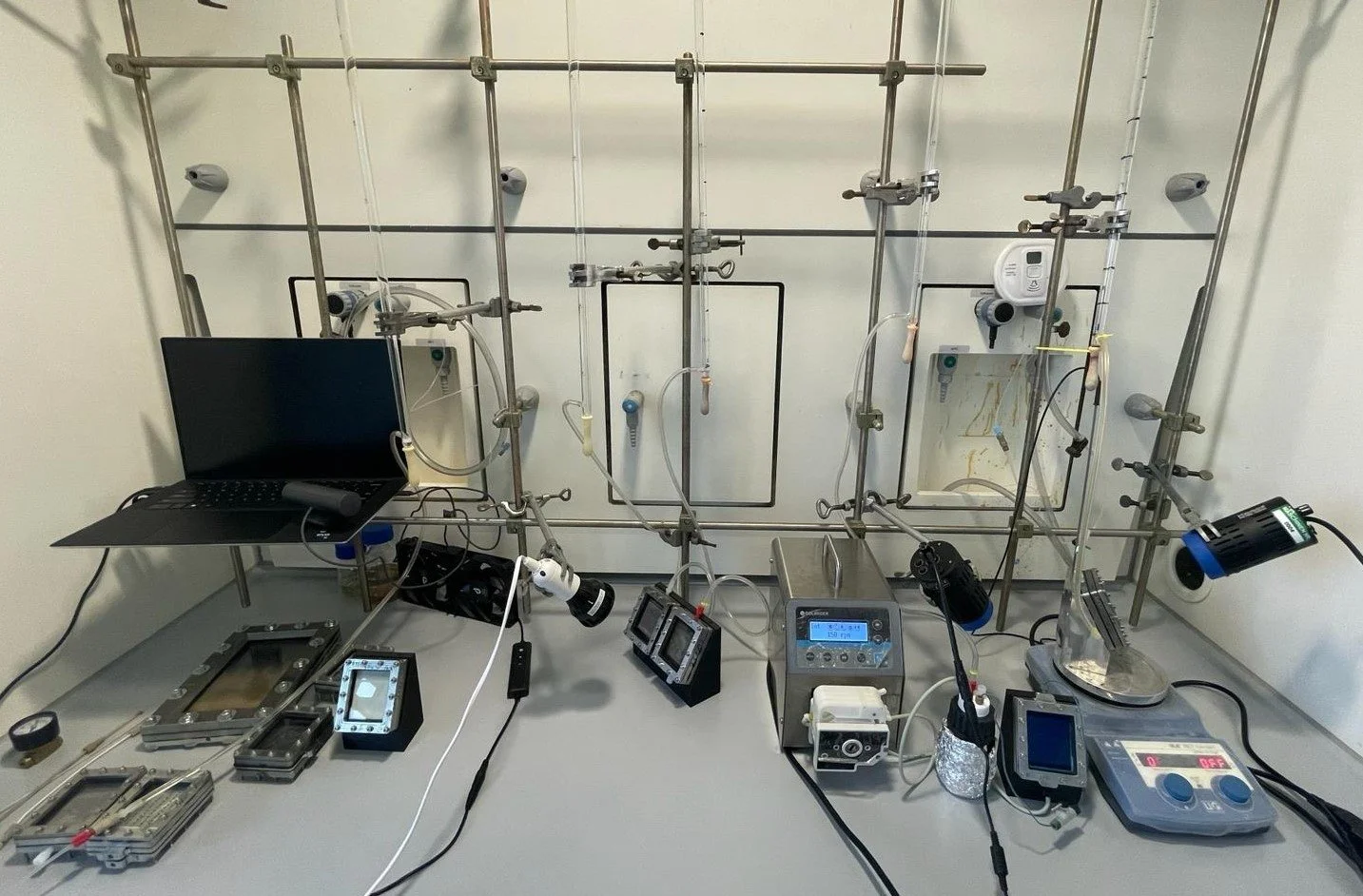Ever thought about becoming a chemical engineer?
Have you ever stopped to think about how products as diverse as fuel, cosmetics, medicines, and food are made? Every single one of them involves complex chemical processes, and at the heart of designing and improving these processes lies one field: chemical engineering.
Chemical engineering is a branch of engineering that combines the principles of chemistry, physics, biology, and mathematics to solve problems involving the production and use of chemicals. But it’s more than just mixing compounds together - it’s about transforming raw materials into valuable products efficiently, safely, and in an environmentally friendly way. And as a student looking for an exciting, impactful, and future-focused field to study, chemical engineering offers countless opportunities to shape the world.
Imagine being able to take raw materials - things that come straight from the earth - and convert them into products we use in everyday life. That's the magic of chemical engineering. For example, crude oil is processed into gasoline for our cars or natural gas is turned into the plastic that packages our food. Have you ever wondered how your shampoo or toothpaste is made? That’s chemical engineering in action, optimizing production to create everything from personal care products to advanced pharmaceuticals.
Chemical engineers aren’t just limited to working in a lab. They design large-scale manufacturing plants, manage production processes, and work on some of the most critical challenges we face today, from renewable energy to clean water supplies. In fact, one of the most exciting things about chemical engineering is its impact on industries as varied as energy, healthcare, food, and even space exploration.
So, why should you, as a student, consider chemical engineering? Well, for starters, it's a highly versatile and in-demand field. According to reports, the global market for chemical products is projected to exceed $5.9 trillion by 2027, meaning there is no shortage of industries that require the skills of a chemical engineer. Whether you’re passionate about sustainability, biotechnology, or process design, chemical engineering gives you the tools to make a significant difference in areas that truly matter.
Have you ever dreamed of creating solutions for climate change? As industries shift toward greener technologies, chemical engineers are on the frontlines of developing cleaner energy sources, including biofuels, solar panels, and carbon capture technologies. In fact, chemical engineers are key players in reducing carbon footprints by finding ways to use renewable energy and minimize waste during production processes. It’s a field where you can genuinely contribute to making the world a better place.
But that’s not all. The future of chemical engineering is filled with innovation. In recent years, there has been a growing emphasis on sustainable practices, green chemistry, and biotechnology, and these trends are only set to accelerate. Chemical engineers are working on groundbreaking technologies, such as creating biodegradable plastics, improving drug delivery systems, and designing processes for outer space colonization.
What’s particularly exciting is that chemical engineers don’t just focus on efficiency - they’re also concerned with safety and environmental responsibility. In the wake of global challenges such as climate change and resource depletion, the ability to develop safe, sustainable solutions is more critical than ever.
For instance, the use of chemical engineering principles in healthcare is revolutionizing medicine by optimizing the production of vaccines, developing new cancer therapies, and even engineering tissues. Have you ever thought about how a single pill can treat an illness? It's thanks to chemical engineers who work behind the scenes to ensure the effectiveness and safety of pharmaceutical products.
Redeem Solar Technologies uses the principles of chemical engineering in its innovative approaches to renewable energy. The company focuses on developing chemical processes that convert solar energy into usable power, and they are working on technologies that increase efficiency and reduce waste in solar panels. By applying chemical engineering principles to sustainability, Redeem Solar Technologies is helping to drive the future of clean energy. Have you ever thought that the energy powering your house could be generated from the sun with minimal environmental impact? That's one of the challenges Redeem is tackling through cutting-edge chemical engineering.
In conclusion, chemical engineering isn’t just about working with chemicals - it’s about using your knowledge of chemistry, biology, physics, and math to solve real-world problems. It’s an exciting, challenging, and dynamic field with endless opportunities to innovate and improve the way we live. Whether you’re passionate about clean energy, pharmaceuticals, or creating more sustainable food systems, chemical engineering provides the platform to turn those passions into reality.
As a student, studying chemical engineering opens doors to a wide range of industries and career paths. And more importantly, it gives you the tools to change the world for the better - one process, one reaction, and one breakthrough at a time. Have you ever wondered how far-reaching your impact could be? As a chemical engineer, the possibilities are endless.


